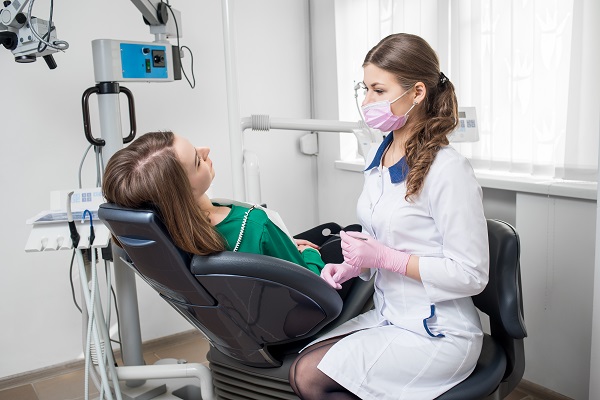3 Dental Issues That Require Seeing an Emergency Dentist

It is a good idea to know which situations require the attention of an emergency dentist. Read on to learn when you should head to an emergency dentist. You can generally avoid the need to see an emergency dentist by practicing basic dental hygiene. However, sometimes, proper oral hygiene is insufficient to prevent a dental emergency, which can occur for different reasons. In these cases, waiting for some days before seeing a dentist is not the best option. Aside from the excruciating pain that a patient may experience by ignoring a situation that demands immediate attention, it is also possible to worsen the condition.
3 Situations that require seeing an emergency dentist
When it comes to emergency dental treatment, many individuals are unsure whether or not their situation is bad enough to require a trip to the emergency dentist. When uncertain of the emergency nature of an incident, the following cases are signs that a visit to the dental office needs to happen as soon as possible.
1. Chipped or broken tooth
One of the most common reasons individuals seek emergency dental care is for a chipped or broken tooth. The teeth, as tough as they are, are susceptible to damage. The damage may occur after biting down on a hard substance, a bad fall, or during sports. A tiny chip or crack in the tooth does not necessitate a trip to the dentist, but a big break or fracture necessitates immediate care.
The sensitive root and inner layers of a tooth are frequently exposed when it fractures. The exposed areas might get infected, resulting in more severe problems. In certain circumstances, the tooth may be fractured beyond the gumline, necessitating emergency tooth extraction.
2. A tooth abscess or infection
An infected or abscessed tooth can be quite painful and need immediate treatment. The tooth becomes infected, and pus forms in the pockets around it. A chronic toothache, painful lymph nodes in the neck, fever, tooth sensitivity to hot and cold, and swelling in the face are all symptoms of an infected tooth. In addition, the infection can spread to the jaw, surrounding tissue, and other areas of the body, so patients need to treat an abscessed tooth as a dental emergency. Patients can relieve the discomfort by washing their mouth with salt water several times before going for emergency dental treatment.
3. A severe toothache
A toothache may not always require a trip to the dentist right away, as some toothaches are short-lived. However, if patients experience severe toothache and sensitivity to hot or cold temperatures, an infection in the tooth or its root may be present. The pain could also result from impacted wisdom teeth or tooth cracks. People need to contact their dentist for emergency care if the pain does not go away after attempting home remedies. The emergency dentist will examine the mouth and recommend the appropriate treatment.
The bottom line
These are some of the warning signals that you should visit an emergency dentist. Anyone experiencing any of these situations should seek medical attention right away. Problems with your teeth can arise at any time and can affect your oral health negatively.
Request an appointment here: https://www.twinbrookdental.com or call Twinbrook Dental Center at (240) 860-1376 for an appointment in our Rockville office.
Check out what others are saying about our dental services on Yelp: Emergency Dentist in Rockville, MD.
Recent Posts
An emergency dentist is indispensable. You can never know when a dental emergency, such as a broken tooth, will happen. Panic may overwhelm you, but it should not. One of the most common dental emergencies is a broken tooth. If you want to see an emergency dentist for your broken tooth, here are the things…
Dental emergencies include things like extreme toothaches, dislodged or broken teeth, cracks, and abscessed teeth. When a tooth becomes abscessed, it does not always present emergent symptoms, which is typically a good thing. However, when a tooth abscess is serious, the result may be painful and create a state of dysfunction. In this case, a…
General dentistry is responsible for addressing all routine things relating to the teeth, including damage that occurs. Teeth become damaged as a result of many things, such as injury, accidents, natural wear and tear, or cavities. Whatever the reasoning may be for a damaged tooth, there are a lot of treatment options available in general…
Looking for more information on night guard treatment? Bruxism is a term used for people who grind and/or clench their teeth, which can be done during the day and/or during the night. Those who grind at night often experience damaged teeth, which can be addressed by using a night guard. Ready to learn more?Individuals that…


